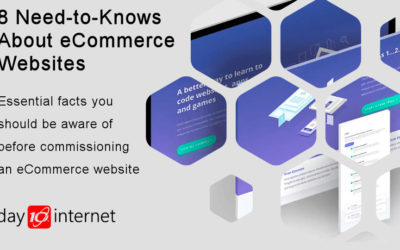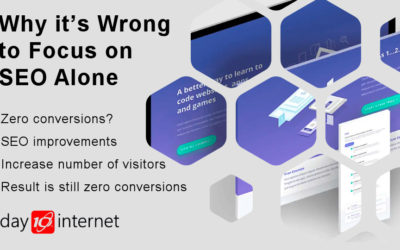When I’m approached by clients for a website, I’m often shocked by some people’s lack of thought or planning.. After all, if you’re looking to buy a car you usually go into the showroom with some idea of what you want. You wouldn’t want to be sold a Rolls Royce when all you need is a small runabout to get you to the shops and back.
But to often, people have little idea of what they want from a website. So here are a list of 10 things you should consider BEFORE approaching a web developer.
1. What are you trying to achieve?
Or what do you want the website for? Before you start to approach website designers, this needs to be clear in your own mind. Likely reasons could be:
- To advertise your products or services
- To sell your products or services online
- To provide an online support function for your customers because your staff are spending too much time supporting customers by phone
- To keep customers informed about the latest developments in you company and your industry.
If you don’t understand what the goal of this site is from the start, then you are likely to get something that doesn’t really meet your needs.
2. Who is the site aimed at?
The more specific you can be about your target audience then the more successful the site is likely to be. The best way to do this is to write down a profile of your ideal customer, This could include:
- Age group
- Gender
- Location
- Industry sector
- Interests
This will enable your developer to decide on the style of this site, the tone of the messages on the site, and particularly, to correctly target the search engine optimization. You probably won’t be able to be specific on all areas, but the more specific you can be the better.
3. What visitor outcome do you want from the site?
When a visitor comes to your site what would you like to see that visitor do before finally leaving the site. This could be:-
- Pick up the phone and make an enquiry
- Fill in an online contact form to make an enquiry
- Buy products or services from the site
- Give you his/her email address using some form of registration form
4. How much do you want to spend?
Decide this before approaching any web developer. The most frustrating thing for any web developer is to provide a quotation for a long list of requirements that add up to thousands of pounds, only to find afterwards that your budget only runs into a few hundred.
Be open with your web developer who will be happy to discuss various options to suit your budget. That way you’ll get the best possible deal.
5. What do you want the site to look like?
It’s always a good idea to be able to give your web developer some idea of how you want the site to look – colours, layout etc. There are various ways to do this.
- Write down a specification
- Make some rough sketched of the layout
- Quote a few examples of websites you like
However, speaking from a designer’s point of view, don’t over specify. Web design is a compromise of how a site looks and what is practical to achieve the site’s aims within your budget. Your developer will be experienced in making these compromises, and if you try to insist on a particular design then you may end up with a site that fails to do what it should do.
6. What do you want the site to say?
Decide upfront what words you want to put on the site. You don’t need to be word perfect, Just a rough idea. Your web developer will then be able to choose the best design to fit your words into.
However, a good web developer should not require that you supply word perfect text. A good developer should be able to write the text, based on your input, in such a way that it will be search engine friendly and meet the goals of the site.
7. What images do you want on it?
Images are extremely important and a key part of the design. Think very carefully about these and get the best possible quality images. There is nothing worse than out of focus images to spoil a site’s design. Decide what you want up front and give your developer your images before he starts designing. That way you will get a site that looks integrated rather than a site that looks as if a template has been deigned and then images stuck in afterwards.
These days most people can take good quality photographs using a smart phone. However, if necessary, don’t be afraid to hire a professional photographer. Good quality images will go long way to making a good quality website.
8. How much time and effort do you want to put into updating it?
This should be a key part of your thinking and factored into your budget. A website needs to be updated regularly otherwise it looks as if your business is stagnating. Decide if you prefer to update the site yourself of pay for your developer to do it. If you want to update it yourself, this facility will have to be designed in from the start.
9. How will visitors find the site?
What this boils down to is an online marketing plan. Don’t simply assume that all visitors are going to come from search engines. There are many other sources. A typical online marketing plan should include:
- Search engine optimization
- Social media
- Blogging
- Online newsletters
- Direct email
And don’t forget that there are offline ways you can drive traffic to your site, such as face-to-face networking, giving talks etc.
Online marketing can be quite time consuming and expensive depending on your business and what you want the site to do for you. for example, if the site is meant to be bringing in a significant proportion of your business, then don’t expect to do this on a shoestring.
10 Do you really need it?
And finally, when you’ve considered all the points above, it’s often a good idea to revisit the question of whether or not you really need a website? I simple blog may suffice or even simply using social media.
I hope these points have given you some food for thought. The key word here is “thought”. Think, and plan, before you leap into committing hundred, or even thousands, into website only to be disappointed.






